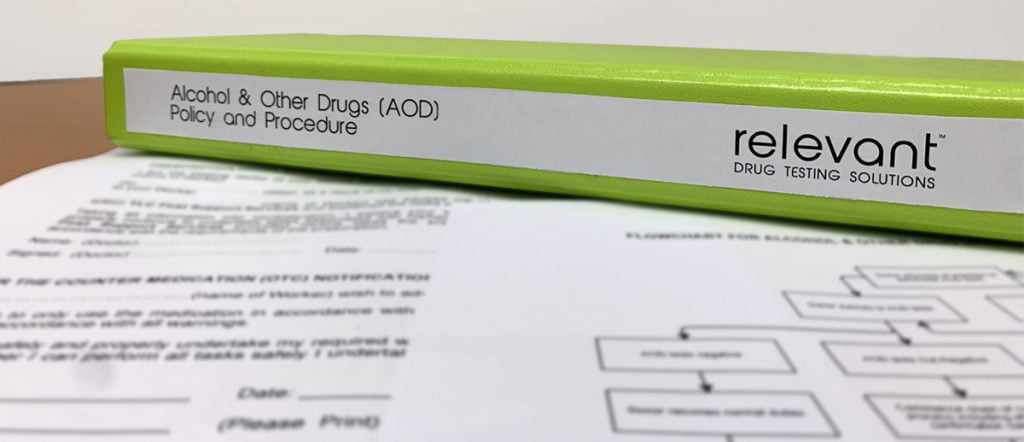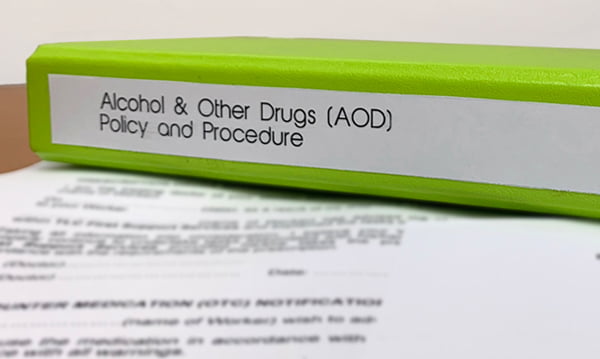
A technically correct Policy & Procedure is the basis of any successful Drug and Alcohol Management Program (DAMP).
It should comprise a range of strategies including education / awareness training, employee assistance programs, alcohol and other drug testing and procedures for breach of Policy or Procedure.
Failure to develop a technically correct Policy and Procedure and subsequent failure to adhere to it will invariably cause major issues!!!
- Whilst a one or two page Policy is ideal, a similar sized Procedure will not address all required components.
- The Policy and Procedure must be practical and workable in a real environment.
- This is often an issue when such documents are prepared by lawyers or persons inexperienced with a DAMP.
- A “patchwork” Policy & Procedure made up of several templates from the internet will rarely be workable in your specific workplace.
- Does the Policy or Procedure refer to correct Australian Standards, WHS Laws or other Legislation relevant to your industry?
- Is there a clear and defined alcohol and other drug testing procedure in place?
- Are there ambiguities or “grey areas” regarding what constitutes a breach of policy?
- Has your Policy & Procedure been implemented correctly?
- Staff should sign off and acknowledge the Policy & Procedure before you can enforce it.
So, what are 5 common mistakes in Alcohol and other Drug Policies & Procedures?
1 Use of terms such as “under the influence” or “impairment”. These issues are very difficult, if not impossible, to prove and should not determine a breach of policy or even a general approach to conforming.
2 Failure to adequately define terms used in the Procedure. Absence of a “definitions” section results in ambiguity which leads to “loopholes”.
3 Inconsistency. For example, combining urine and saliva testing in the same procedure when one tests for recent exposure the other tests for historical use.
4 Failure to document the actual testing procedure. For example all testing to be conducted with a nominated independent testing agency with procedures compliant to Australian Standards.
5 Omitting guidelines to manage either prescribed or over the counter medication. These can be managed effectively and satisfactorily with guidelines making up a few paragraphs.
Case Study – Perkins Vs Golden Plains Fodder – South Australia
An employee was dismissed from employment for refusing to submit to a request for a drug test. The matter was referred to the Commissioner who found in favour of the employee.
Employer mistakes included:
- Policy and Procedure inconsistent and unclear.
- Rationale referred to impairment rather than fitness for work.
- Compliance with the Policy and Procedure extended to the conduct of the employees private life which was determined to be “harsh and unreasonable” (Urine testing).
- The type of testing to be conducted was not defined in the Policy or Procedure.
- The Drug & Alcohol Policy was “not even understood by its authors who had attempted to elevate it to a purpose it was never able to or intended to achieve”.
“He who fails to plan, plans to fail.”
Winston Churchill





